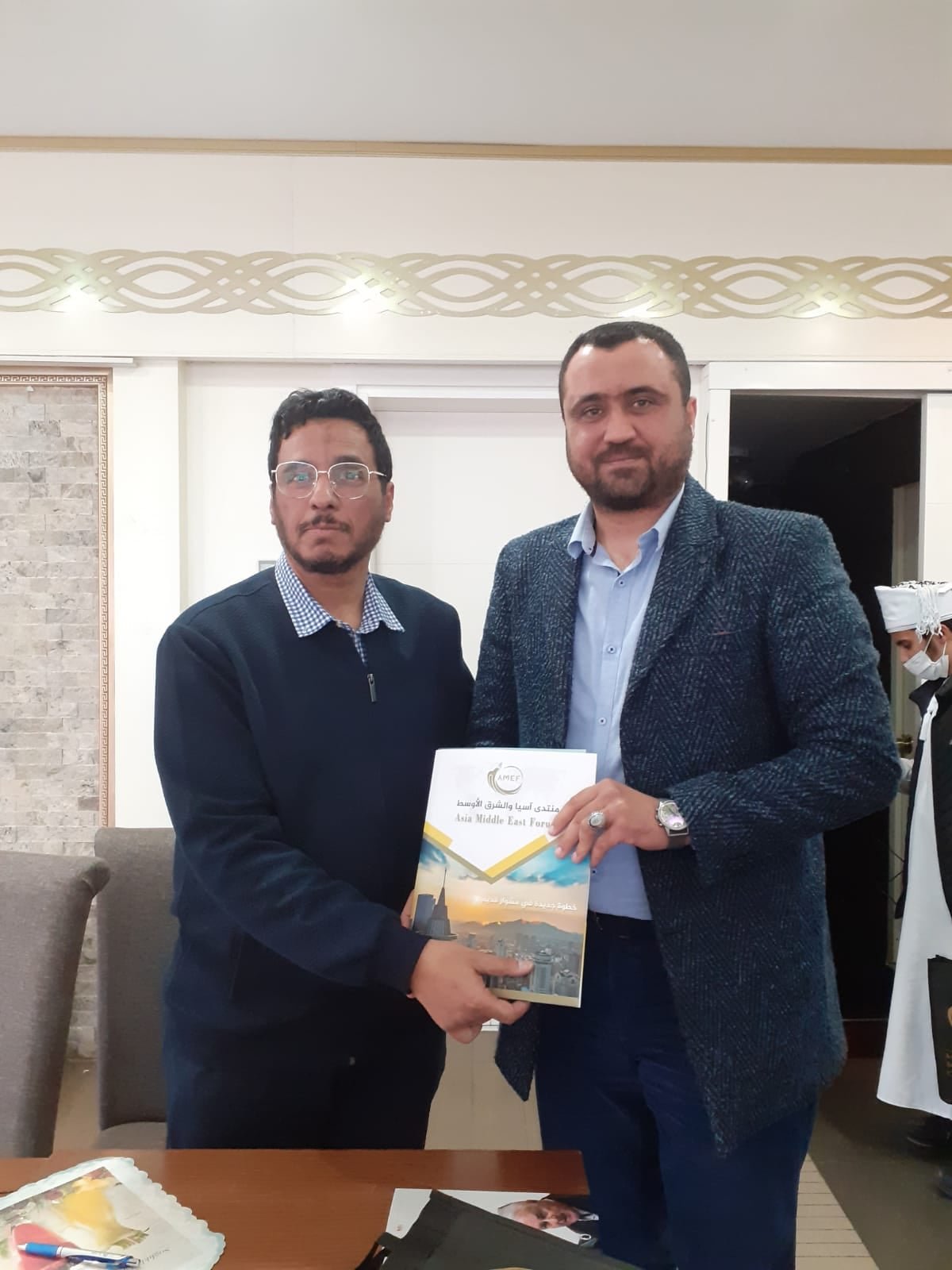Summary: Current Situation in US, Impacts on Middle East Issues
Dr. Amr Darrag outlines his talk with three main points: a brief background of the United States in the pre-Coronavirus era, developments in the US during the last three months, and some expected repercussions of the US policy in the Middle East.
The speaker began his talk by indicating that multiple changes have taken place in the international arena over the last twenty years as the United States apparently began to lose momentum. Furthermore, the outbreak of Coronavirus made the US more vulnerable, and there appears a recession of the liberal democratic model.
Dr. Darrag suggests the United States has been in a position of leading the world by control following the end World War II. The chairman of the Egyptian Institute for Studies says the US military spending is exceeding the next largest seven military budgets combined. In addition, the speaker says the US economy is strong, and he links that to the ability to print as much Dollars as they want. It was also mentioned during the talk that the American dollar is used for more than 60% of trade transactions in the world, including the oil sector. The technology and cultural sector in the US present other forms of the American dominance.
However, the former Egyptian Minister of Planning and International Cooperation notes that the US international status became in doubt over the last few years. He observes a recession of attractiveness of the America model to the entire world, while the domestic democratic liberal model is in dilemma as well. Dr. Darrag recalls a book authored by Francis Fukuyama assuming the US was going to control the world forever which proved not to be the case.
The internal dispute is emerging in the country as people complain about the elite control of politics, media, economy, business and everything. This issue of elite was viewed by the speaker as a main problem in the US that leads to a large social problem. He elaborates that the top 0.1 elite may control 23% of the wealth, while the top 1% group controls 50% of the economy. In politics, it is very hard to join the top elite as candidates need wide support from corporations, interest groups and access to huge amounts of money. Dr. Amr Darrag also highlights the challenge to get access to media and audience as only few media outlets control the narrative.
The speaker states that the intrinsic issue in the US is discrimination against color and treatment of minorities, especially during the current tenure of Trump’s presidency.
Due to the pandemic outbreak in the last three months, the economy has been almost shutdown and more than forty million Americans submitted unemployment claims which is an unprecedented figure that exceeds the number of those affected by the Great Depression.
According to Dr. Darrag, the Coronavirus highlighted and expedited the said problems, but it did not create them. While the military factor remains the same, the US society is suffering and such internal factor constitutes a major threat to empires and nations. ‘The situation becomes much worse in case the country is headed by a president who lacks leadership and keeps pouring oil onto fires’, Dr. Darrag said.
The former Egyptian Minister discusses the presence of international actors in the Middle East. He acknowledges that Russia and China seek to cultivate their ties and roles in the region. Dr. Darrag believes that the United States began to decrease its presence in the Middle East since Barack Obama’s presidency term. It all stared with the realization after George W. Bush left the presidency that the US paid much attention to the Middle East while ignoring the rising power of China. The speaker suggests that since the presidency of Obama, the US government has given more attention to Asia, China in particular, and the presence in the Middle East was arguably reduced. Dr. Darrag says that the United States left a (power) vacuum in the Middle East which filled by ‘three mechanisms’. The three mechanisms are: the rising powers of Russia and China, regional powers (namely Iran, Turkey, UAE and Saudi Arabia), and the expansion of autocratic regimes. For the lecturer, the involvement of China in the Middle East is not a major one, while Russia counts on its military capabilities to play a role in the region as in the cases of Syria, Egypt and Libya. The Russian role could help Moscow secure strategic advantage and strong position in the face of the European Union and NATO. On the other hand, Iran has expanded its role in Iraq, Syria, Lebanon and Yemen. The UAE seemingly leveraged on its wealth to get involved in the region with a strategic turn to make use of Egypt capabilities. The Turkish role in the region has expanded in Qatar, Syria and Libya. The speaker views the Turkish actions as positive as the country counterbalances negative interventions in the region. Dr. Darrag takes note that the third mechanism of autocratic regimes associate with major powers to enforce mutual agenda.
In summary, it is understood that significant changes have taken place in the United States over the last twenty years. The phenomenon of discrimination is seemingly one of the defining characters of the United States that affect its status worldwide. The Trump leadership that propagates self-interests has contributed to a recession of the US leading role in the world, and the Coronavirus further magnified the weakness of the American model.





